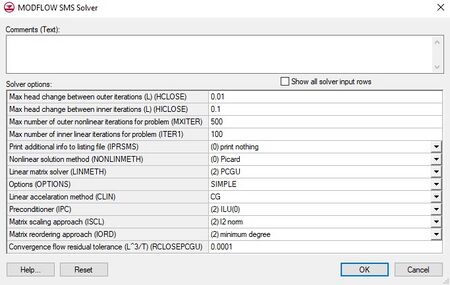GMS:SMS Package: Difference between revisions
From XMS Wiki
Jump to navigationJump to search
No edit summary |
No edit summary |
||
| Line 75: | Line 75: | ||
* Convergence flow residual tolerance (L^3)(RCLOSEPCGU) | * Convergence flow residual tolerance (L^3)(RCLOSEPCGU) | ||
* MILU(0) relaxation factor (RELAXPCGU) | * MILU(0) relaxation factor (RELAXPCGU) | ||
